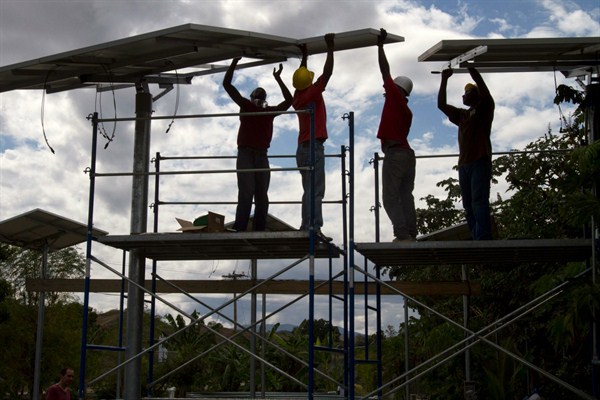The year 2010 started with two large earthquakes less than two months apart. The strongest one, by far, was the earthquake in February in Concepcion, Chile, that killed about 250 people. Unfortunately, the earthquake also generated a tsunami, and since an adequate early warning was not issued along the Chilean coast, the tsunami ended up doubling the death toll. A month before, however, a much weaker earthquake shook another coastal city on the other side of the Americas: Port-au-Prince, Haiti. Tragically and catastrophically, many of the city’s buildings collapsed, and the death toll may have reached more than a quarter of a million people. Both illustrated the combination of factors that can turn a natural phenomenon into a human tragedy.
A disaster occurs when exposure to a natural hazard causes harm to people and/or damages buildings and infrastructure. These natural hazards come in many forms, but generally result from meteorological or geological phenomena. They can occur quickly, sometimes without warning, or they can occur slowly, over the span of days, weeks, months or even years. By themselves, natural hazards are not disasters. A hurricane that does not make landfall or cross shipping lanes does not have a meaningful impact on society.
Similarly, a society’s ability to cope with the exposure to natural hazards is vitally important in determining whether a hazard turns into a disaster. Most earthquakes in the city I live in, Wellington, New Zealand, do not cause any damage, as buildings are built to a high standard. But earthquakes of similar intensity in other places—say, Kathmandu, Nepal—may have very different consequences. Thus, disasters are a function both of the exposure of population and assets to the hazard, and of their vulnerability to it.

